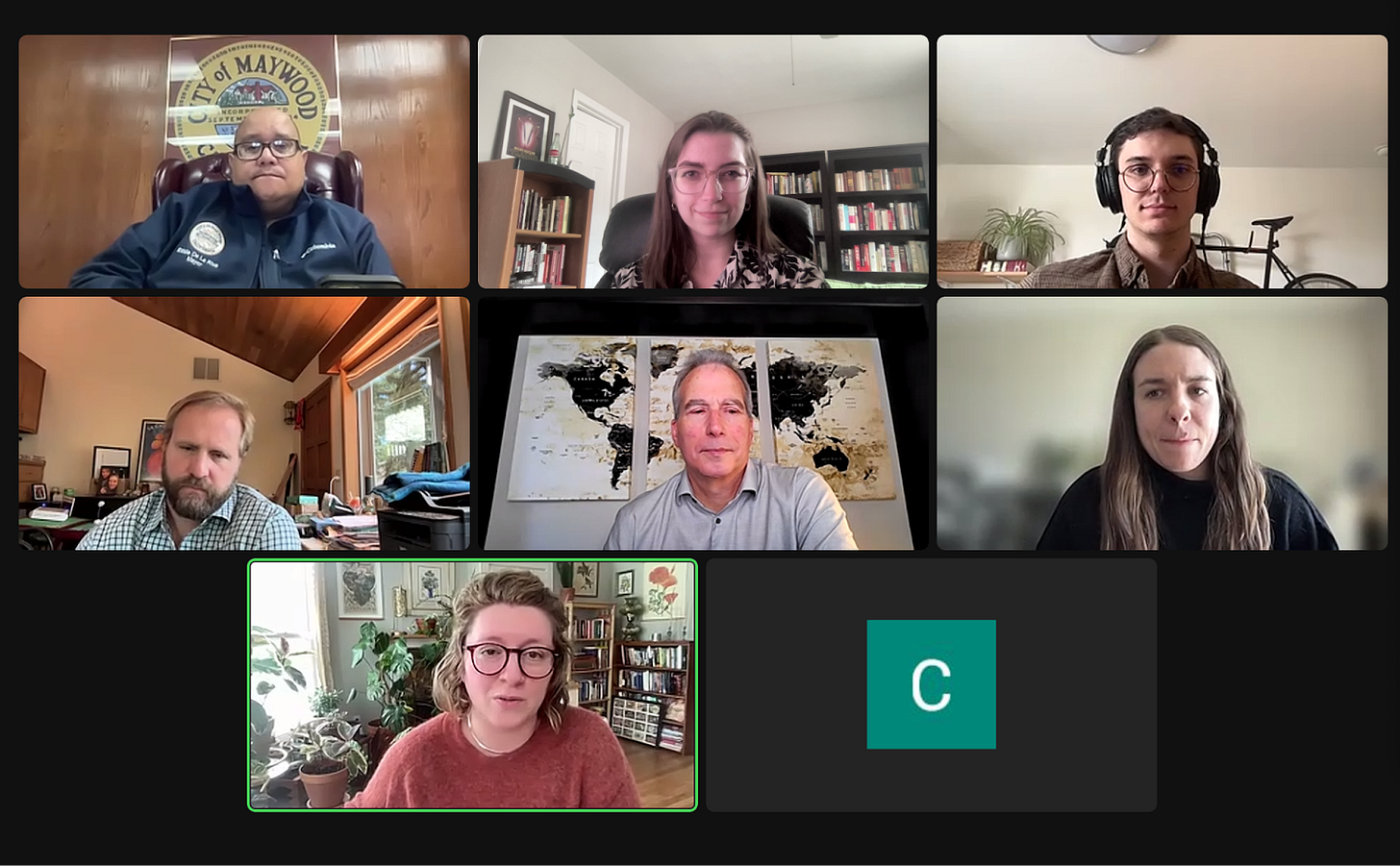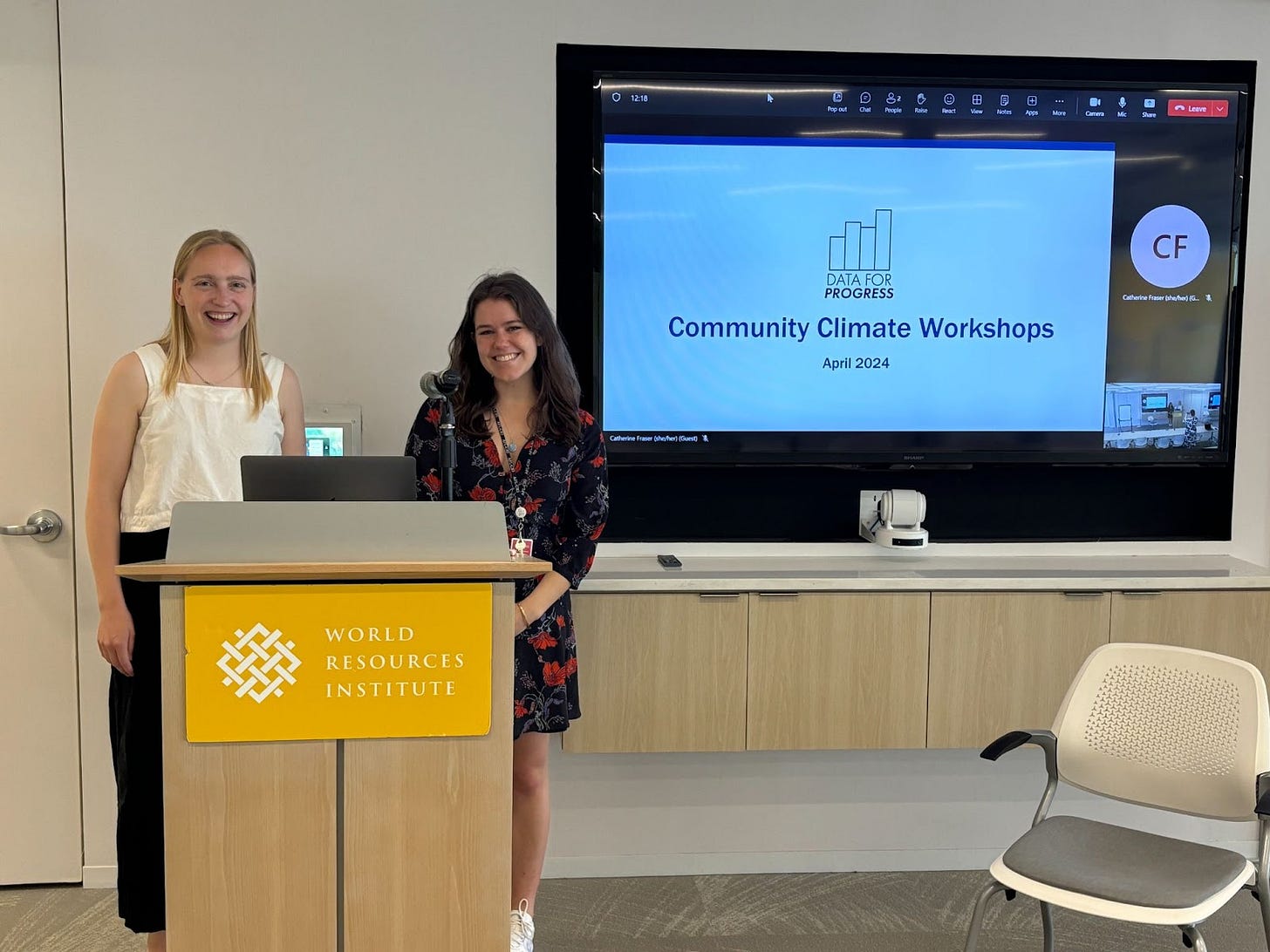Voters to BP: It’s Not Us, It’s You
Welcome back to Data for Climate Progress — your one-stop shop for all things climate at Data for Progress.
Welcome back to Data for Climate Progress — your one-stop shop for all things climate at Data for Progress. Catch us here every month for our latest climate polling, juicy insights, and can’t-miss reading lists.
As always, we’d love to hear from you — drop us (Grace Adcox and Catherine Fraser) a line at gracea@dataforprogress.org and catherine@dataforprogress.org. Forwarded this email? You can subscribe below.
Los Angeles County Voters Support Suing Polluters
The Center for Climate Integrity and Data for Progress surveyed likely voters in Los Angeles County, California, to understand the importance of climate change to them and to assess their openness to climate accountability lawsuits that seek to make major oil and gas companies pay their fair share of climate damages. Respondents strongly support a proposal for litigation against oil and gas companies, like ExxonMobil, Chevron, BP, and Shell, to make them pay their fair share of climate costs that local communities in Los Angeles County will face in the coming decades, with 74% overall in support of such litigation, including 85% of Democrats and 69% of Independents.
DFP in Nature’s Communications Earth & Environment
This month, Nature’s Communications Earth & Environment features a new paper authored by DFP’s Celina Scott-Buechler. The paper explores environmental justice, just transition concerns, and opportunities for direct air capture (DAC) in the U.S., and finds that communities may support DAC, but with conditions. Scott-Buechler argues that communities should be able to choose for themselves whether DAC is right for them, ensuring that an emerging DAC industry aligns with justice principles and mitigates risks of community pushback and project delays. You can read the piece in full here.
And in Local Labor News … Meet DFPWU
We’ve said it before, and we’ll say it again: A strong climate future is a unionized one. We’re excited to live and embody our progressive values with a union at Data for Progress. We join our friends at Evergreen Action Union in unionizing this Earth Month.
Climate Cost Sticker Shock in Los Angeles
With Los Angeles County communities facing a massive bill of at least $12.5 billion to protect themselves from the worsening impacts of climate change through 2040 alone, Data for Progress conducted polling with Center for Climate Integrity (CCI) to understand voter attitudes toward climate costs and resilience. This month, Data for Progress’ Kevin Hanley and Grace Adcox presented our polling during a briefing on CCI’s latest study in collaboration with Resilient Analytics, “Los Angeles County’s Climate Cost Crisis: A $12.5 Billion Bill to Protect Communities Through 2040.”

We’ll Talk Qualitative Research and Climate All Day, Any Day
DFP’s Catherine Fraser and Charlotte Scott took a Red Line train to World Resource Institute’s D.C. office this month to talk about DFP’s qualitative research program and our community workshops on climate infrastructure. We shared findings from 12 community workshops conducted to date across the country, which focused on a suite of clean energy and carbon removal technologies.
We also gave an overview of our qualitative research program more generally, including the different types of qualitative research we do and why, as well as best practices for stakeholder, environmental justice, and community engagement. If you think your project would benefit from qualitative research, or you have questions about these methods, reach out to charlotte@dataforprogress.org!

Voters to BP: It’s Not Us, It’s You
Since the first Earth Day in 1970, April has often been heralded as Earth Month in the U.S. On Earth Day and throughout the month, individuals are encouraged to ride their bike to work, take the bus, or skip the plastic cup. Often, individuals are called upon to mind their “carbon footprint” — despite the fact that individual actions, though important, cannot and will not be enough to address the climate crisis.
Coined by our dear friends at British Petroleum (BP) in the early 2000s, the term “carbon footprint” has become oft-used and well-known across the U.S. and the world. In fact, a recent Data for Progress survey finds 85% of voters have heard either “a lot” or “a little” about the term.
Most of the voters who are familiar with the term say they consider their own carbon footprint when making household purchasing decisions (69% consider their carbon footprint a lot or a little). Despite the ubiquity of the term “carbon footprint,” most voters don’t know it was coined by an oil and gas company, never mind that its intent was to put the onus on individuals — and not the biggest emitters — to reduce emissions and address climate change. Just 9% of voters who are familiar with the term “carbon footprint” correctly identify fossil fuel companies as the originators of the term.
Listen up, BP: We next informed respondents that it was *actually* BP that coined and promoted the term “carbon footprint” in the early 2000s to promote the idea that climate change is not the fault of oil and gas companies, but of individuals. After learning this information, a majority of voters (60%) agree with a statement that says, given its role in creating the term “carbon footprint” to shirk its own responsibility to reduce emissions, BP should be held accountable for its efforts to delay and avoid reducing its own emissions.
As Earth Month comes to a close, Americans place blame for climate change and delayed emissions reductions squarely on those most responsible: big corporations and fossil fuel companies, like BP. You can read the full brief here.

















